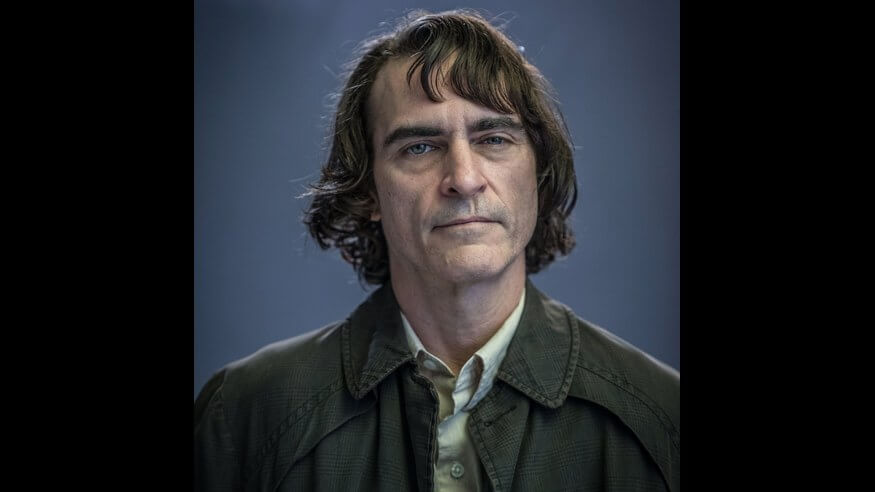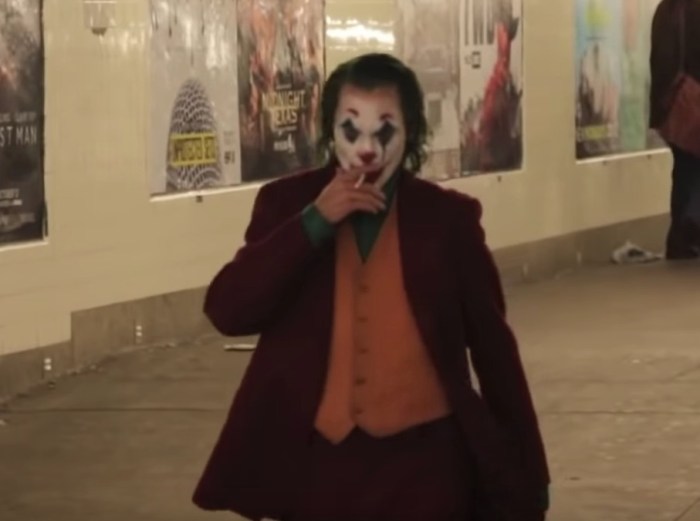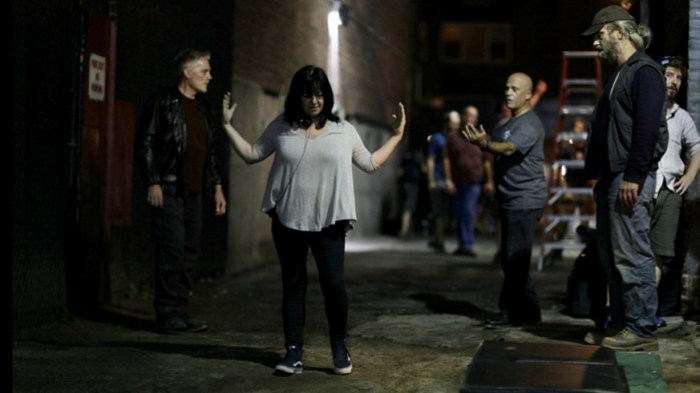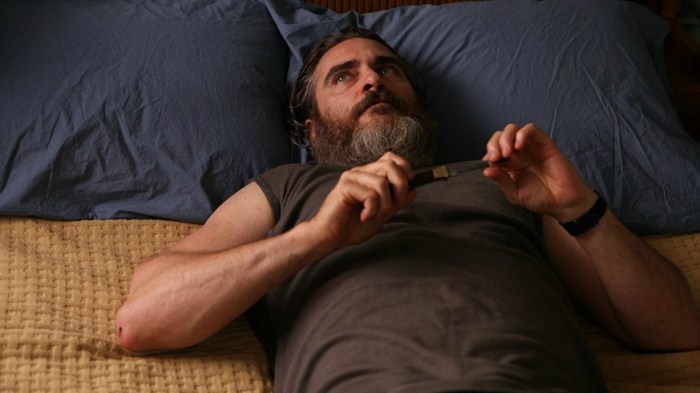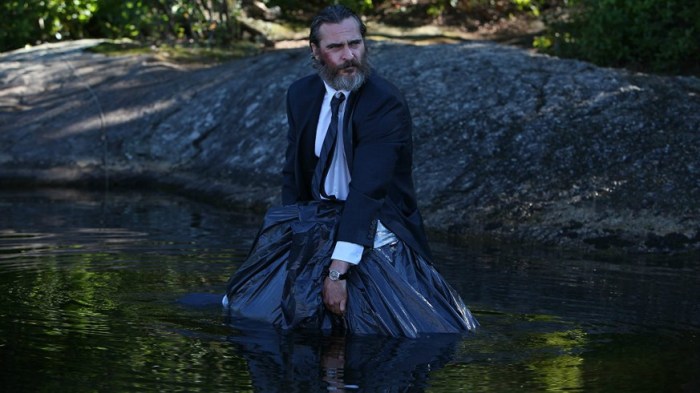Actor Joaquin Phoenix lives in the skin of the character he plays. His performance in Joker has made the film take the best film prize during the last edition of the Venice Film Festival. To prepare for the role, Phoenix lost so much weight that he felt he was going to go crazy.
While the Batman antagonist develops within the narrative in the environment of superhero movies, Joaquin Phoenix’s character is closer to a horror movie with many hidden political messages. To create a role that remains in the collective imagination thanks to unforgettable actors such as Jack Nicholson, Jared Leto or Heath Ledger, Phoenix had to learn contortionism. Metro chatted with the actor to learn more about his character who ends up becoming a psychotic criminal doing nothing but laughing when torturing and murdering his victims.
Joaqin Phoenix interview on Joker role
Q: Congratulations on this incredible performance. I can’t get the contortions out of my head. How did you do it?
– There are two sequences in this movie that are important in regards to that. The clown routine and the dance. I started talking to the choreographer that was brought in. It was very interesting to me, to learn about the vocabulary of dance and movement. And we started watching these videos. And one in particular really moved me. It wasn’t the dance with attitude that I liked. The arrogance was what I stole. That was where Joker came out.
So, the Joker emerged while you were filming the movie?
– Yeah, that is true. He came out through the movement and the dance. So, when we started playing this music – a cello piece – and I came in and started to move… It was very natural. This idea of metamorphosis was intriguing to me. Who is this guy, and how did he become who he is. It was almost some kind of interpretive dance.
How did you react when you were told to play Joker? How did you prepare for this role?
– When they approached me I thought, “no way I am going to do this.” I always thought there was an opportunity to explore these kind of characters more. I have not seen it in other comic book movies. I met with the director and he showed me the videos of these laughing pits. The laughter was almost painful for Todd (director). I thought that was an interesting way of looking at this character. I never thought about Joker that way.
And did you read the comic strips?
– As we began doing the research I thought I wanted to go my own way. I didn’t want to be influenced by any other comics. I tried to approach Joker from the inside as a man and not from the approach of this iconic super villain that everybody knows. I felt I had a lot of freedom to find my version of the Joker.
Was it hard to find the right laughter? Was it painful?
– The second time I met Todd I wanted him to audition my laugh. He came to my house and sat on the couch. It took me several minutes to find that laugh. I didn’t want to fake it. It had to be genuine from the very first minute. At one point he was really uncomfortable. It was weird. It was important to me that I could do it. And to be honest it was more difficult than I thought. Then I tried to do it, I struggled. I could feel there was the potential for something there. It took a couple weeks of shooting until we got it right.
Laughing is contagious. But your laughter is not…
– Really, when I saw it, it was. [*Laughs*] You can feel the pain in the character when he was laughing. There is this other laugh, almost fake one. That’s something we didn’t anticipate to be coming out at all.
This character is obviously very ill.
– I look at him as somebody who had experienced a lot of trauma, who does not know how to deal with the real world. Thus he ends up just being medicated. I didn’t really approach him as a mentally ill. He’s been on seven different medications. I was researching the medications and the side effects. He never had the opportunity to express his needs. I never identified anything about him with being mentally ill. I do think he was a true narcissist.
People keep coming back to this character, why is that?
– I don’t know. Some people think that he looks cool. But maybe there is a certain irreverence about things that he displays. Everybody has different appreciations for him. I am not sure.
Do you have a new appreciation for him now?
– First going in, it took longer than six weeks to finally shoot a scene with Joker. I didn’t know how it was going to be. I was terrified. But it all made perfect sense. When I was Joker I started to understand Arthur in a different way. I was so happy to shoot scenes as Joker so late in the process. Todd really created this amazing creative space where we could make mistakes and discover something. It was great that we weren’t so much on the clock to develop this character. We discovered a lot about the Joker while on set.
There are several political messages hidden in this movie about killing people and as you mentioned before, the mental health issues. Was that intentional?
– I didn’t think about that. But it’s great that you see these political messages. I like when people are being challenged on different issues. I don’t think Todd was making just one statement. I like that there weren’t any easy answers to these issues. I hope it brings up these feelings in the audience. Everybody felt differently about their motivations on set too.
What was your relationship to clowns?
– I never really thought about clowns to be honest. As a kid I dressed up as a clown. I completely forgot about that. I remember the photograph. When I first put on the makeup it was great. That process to create the look was so much fun. I love the idea that Joker’s look is based on his work. And that it’s grounded in reality.
Did the Joker stay with you at the end of the working day?
– At the end of the night there was never really an end. It stayed with me every night after work for another two or three hours. I never felt this moment of being done with my work day. I also didn’t really have a life at that time because I couldn’t go out to eat. I didn’t socialize at all. The person I interacted with was my director. That became my world. It was nonstop. That’s the best for me. I like working like that.
How hard was that for you?
– I want to say it was super hard. But it was so inspiring, that as much energy I put into it, it gave it back. I would go home after work and we would just talk about the next scene. I was just super excited. I would show up at set two hours early to just sit in the trailer and talk about it.
Would you do it again?
– That’s tough to answer, right? It really depends on the audience, doesn’t it?

